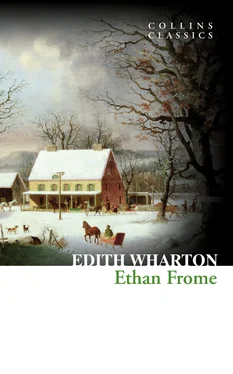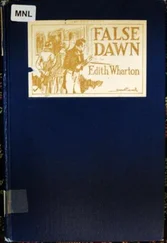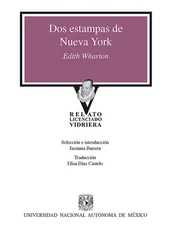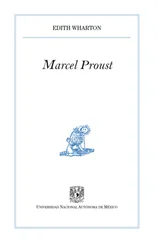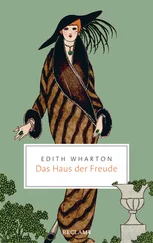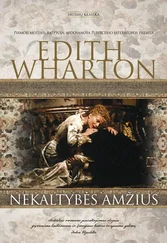The real merit of my construction seems to me to lie in a minor detail. I had to find means to bring my tragedy, in a way at once natural and picture-making, to the knowledge of its narrator. I might have sat him down before a village gossip who would have poured out the whole affair to him in a breath, but in doing this I should have been false to two essential elements of my picture: first, the deep-rooted reticence and inarticulateness of the people I was trying to draw, and secondly the effort of ‘roundness’ (in the plastic sense) produced by letting their case be seen through eyes as different as those of Harmon Gow and Mrs Ned Hale. Each of my chroniclers contributes to the narrative just so much as he or she is capable of understanding of what, to them, is a complicated and mysterious case; and only the narrator of the tale has scope enough to see it all, to resolve it back into simplicity, and to put it in its rightful place among his larger categories.
I make no claim for originality in following a method of which La Grande Bretêche and The Ring and the Book had set me the magnificent example; my one merit is, perhaps, to have guessed that the proceeding there employed was also applicable to my small tale.
I have written this brief analysis – the first I have ever published of any of my books – because, as an author’s introduction to his work, I can imagine nothing of any value to his readers except a statement as to why he decided to attempt the work in question, and why he selected one form rather than another for its embodiment. These primary aims, the only ones that can be explicitly stated, must, by artist, be almost instinctively felt and acted upon before there can pass into his creation that imponderable something more which causes life to circulate in it, and preserves it for a little from decay.
EDITH WHARTON
31 March 1922
ETHAN FROME CONTENTS Cover Title Page ETHAN FROME Edith Wharton Copyright History of Collins Life & Times Author’s Note Ethan Frome Chapter 1 Chapter 2 Chapter 3 Chapter 4 Chapter 5 Chapter 6 Chapter 7 Chapter 8 Chapter 9 Classic Literature: Words and Phrases About the Publisher
I had the story, bit by bit, from various people, and, as generally happens in such cases, each time it was a different story.
If you know Starkfield, Massachusetts, you know the post-office. If you know the post-office you must have seen Ethan Frome drive up to it, drop the reins on his hollow-backed bay and drag himself across the brick pavement to the white colonnade: and you must have asked who he was.
It was there that, several years ago, I saw him for the first time; and the sight pulled me up sharp. Even then he was the most striking figure in Starkfield, though he was but the ruin of a man. It was not so much his great height that marked him, for the “natives” were easily singled out by their lank longitude from the stockier foreign breed: it was the careless powerful look he had, in spite of a lameness checking each step like the jerk of a chain. There was something bleak and unapproachable in his face, and he was so stiffened and grizzled that I took him for an old man and was surprised to hear that he was not more than fifty-two. I had this from Harmon Gow, who had driven the stage from Bettsbridge to Starkfield in pre-trolley days and knew the chronicle of all the families on his line.
“He’s looked that way ever since he had his smash-up; and that’s twenty-four years ago come next February,” Harmon threw out between reminiscent pauses.
The “smash-up” it was—I gathered from the same informant—which, besides drawing the red gash across Ethan Frome’s forehead, had so shortened and warped his right side that it cost him a visible effort to take the few steps from his buggy to the post-office window. He used to drive in from his farm every day at about noon, and as that was my own hour for fetching my mail I often passed him in the porch or stood beside him while we waited on the motions of the distributing hand behind the grating. I noticed that, though he came so punctually, he seldom received anything but a copy of the Bettsbridge Eagle, which he put without a glance into his sagging pocket. At intervals, however, the post-master would hand him an envelope addressed to Mrs. Zenobia—or Mrs. Zeena-Frome, and usually bearing conspicuously in the upper left-hand corner the address of some manufacturer of patent medicine and the name of his specific. These documents my neighbour would also pocket without a glance, as if too much used to them to wonder at their number and variety, and would then turn away with a silent nod to the post-master.
Every one in Starkfield knew him and gave him a greeting tempered to his own grave mien; but his taciturnity was respected and it was only on rare occasions that one of the older men of the place detained him for a word. When this happened he would listen quietly, his blue eyes on the speaker’s face, and answer in so low a tone that his words never reached me; then he would climb stiffly into his buggy, gather up the reins in his left hand and drive slowly away in the direction of his farm.
“It was a pretty bad smash-up?” I questioned Harmon, looking after Frome’s retreating figure, and thinking how gallantly his lean brown head, with its shock of light hair, must have sat on his strong shoulders before they were bent out of shape.
“Wust kind,” my informant assented. “More’n enough to kill most men. But the Fromes are tough. Ethan’ll likely touch a hundred.”
“Good God!” I exclaimed. At the moment Ethan Frome, after climbing to his seat, had leaned over to assure himself of the security of a wooden box—also with a druggist’s label on it—which he had placed in the back of the buggy, and I saw his face as it probably looked when he thought himself alone. “That man touch a hundred? He looks as if he was dead and in hell now!”
Harmon drew a slab of tobacco from his pocket, cut off a wedge and pressed it into the leather pouch of his cheek. “Guess he’s been in Starkfield too many winters. Most of the smart ones get away.”
“Why didn’t he?”
“Somebody had to stay and care for the folks. There warn’t ever anybody but Ethan. Fust his father—then his mother—then his wife.”
“And then the smash-up?”
Harmon chuckled sardonically. “That’s so. He had to stay then.”
“I see. And since then they’ve had to care for him?”
Harmon thoughtfully passed his tobacco to the other cheek. “Oh, as to that: I guess it’s always Ethan done the caring.”
Though Harmon Gow developed the tale as far as his mental and moral reach permitted there were perceptible gaps between his facts, and I had the sense that the deeper meaning of the story was in the gaps. But one phrase stuck in my memory and served as the nucleus about which I grouped my subsequent inferences: “Guess he’s been in Starkfield too many winters.”
Before my own time there was up I had learned to know what that meant. Yet I had come in the degenerate day of trolley, bicycle and rural delivery, when communication was easy between the scattered mountain villages, and the bigger towns in the valleys, such as Bettsbridge and Shadd’s Falls, had libraries, theatres and Y. M. C. A. halls to which the youth of the hills could descend for recreation. But when winter shut down on Starkfield and the village lay under a sheet of snow perpetually renewed from the pale skies, I began to see what life there—or rather its negation—must have been in Ethan Frome’s young manhood.
I had been sent up by my employers on a job connected with the big power-house at Corbury Junction, and a long-drawn carpenters’ strike had so delayed the work that I found myself anchored at Starkfield—the nearest habitable spot—for the best part of the winter. I chafed at first, and then, under the hypnotising effect of routine, gradually began to find a grim satisfaction in the life. During the early part of my stay I had been struck by the contrast between the vitality of the climate and the deadness of the community. Day by day, after the December snows were over, a blazing blue sky poured down torrents of light and air on the white landscape, which gave them back in an intenser glitter. One would have supposed that such an atmosphere must quicken the emotions as well as the blood; but it seemed to produce no change except that of retarding still more the sluggish pulse of Starkfield. When I had been there a little longer, and had seen this phase of crystal clearness followed by long stretches of sunless cold; when the storms of February had pitched their white tents about the devoted village and the wild cavalry of March winds had charged down to their support; I began to understand why Starkfield emerged from its six months’ siege like a starved garrison capitulating without quarter. Twenty years earlier the means of resistance must have been far fewer, and the enemy in command of almost all the lines of access between the beleaguered villages; and, considering these things, I felt the sinister force of Harmon’s phrase: “Most of the smart ones get away.” But if that were the case, how could any combination of obstacles have hindered the flight of a man like Ethan Frome?
Читать дальше
